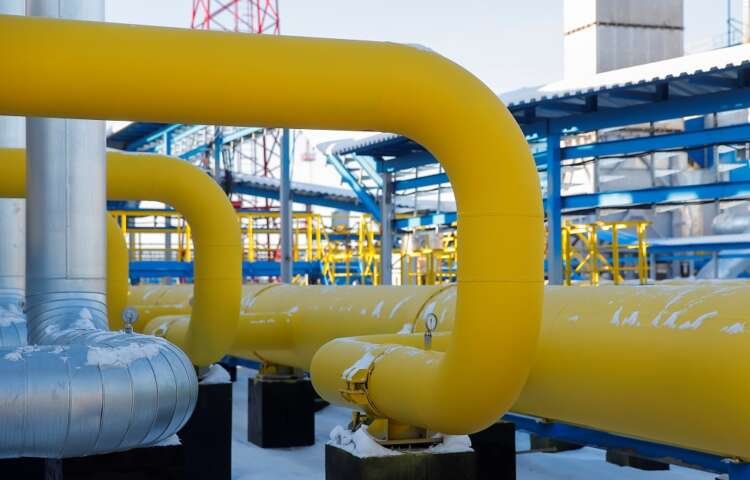Europe pursues payment response as Russian gas supply threat eases


By Marwa Rashad
LONDON (Reuters) -European governments and companies worked on a common approach on Friday to Russia’s demand that they pay for its gas in roubles as the threat of an imminent supply halt eased.
European capitals have been on alert for a disruption to gas imports as Russian President Vladimir Putin seeks retaliation over Western sanctions for the Feb. 24 invasion of Ukraine.
A crunch point appeared to be in the offing when Moscow issued a decree on Thursday requiring foreign buyers of Russian gas to open rouble accounts in state-run Gazprombank from Friday or else risk being cut off.
But the Kremlin said on Friday it would not immediately turn off the taps to Europe as payments on deliveries due after April 1 come in the second half of this month and May.
That message, and signs Europe would take a pragmatic approach, were a relief for markets. Gas prices, which had risen on fears of disruption, fell.
“If things remained like this, all in all not a lot would change,” Italy’s Ecology Transition Minister Roberto Cingolani told state broadcaster RAI.
With weeks left before bills are due, governments in Europe, which relies on Russia for more than a third of its gas, are talking to energy companies about how to pay them.
“Working closely with Member States and operators. EU coordination today to establish a common approach on currency payments for gas contracts with Russia,” European Commission energy division director general Ditte Juul Jorgenesen tweeted.
The European Commission declined further comment.
Analysts said the rouble payment plan, which cements Gazprom’s position at the heart of Russian gas trading, was more about shielding the oil and gas company from future sanctions than depriving Europe of fuel.
Gazprombank has been spared from the harsh sanctions imposed on other Russian banks so European gas buyers could open an account with it and let the lender buy roubles on their behalf. It would have to remain unsanctioned for trade to continue.
Although energy exports are Putin’s most powerful lever against sweeping Western sanctions, his room for manoeuvre is also limited because Moscow does not have alternative markets for its gas, which is piped to Europe.
“If Putin turns off the gas, it might only be for a relatively short period of time. He needs our money and cannot reroute all the natural gas,” one European gas trader said.
Germany meanwhile said it was examining Putin’s decree. An economy ministry spokesperson said private contracts were valid and that the country, which depends on Russia for 40% of its gas needs, was paying in euros.
Berlin has already activated an emergency plan that could lead to gas rationing if supplies drop too low.
Gazprom said on Friday it was exiting its business in Germany, although it was not immediately clear how this would affect the supply of Russian gas into Europe’s largest economy.
PRICE PRESSURE
Putin’s decision to enforce rouble payments has boosted the Russian currency, which fell to historic lows at the start of the invasion, which Moscow calls a “special military operation”. The rouble has since recovered much lost ground.
European buyers are still prepared to buy gas under existing contracts while they seek clarity on Putin’s demand, while Gazprom said on Friday it had started to notify clients of a requested switch of end-payment currency to roubles.
Austria’s OMV and Gazprom have had initial contact regarding paying for gas in roubles as demanded by Moscow, a spokesperson for OMV said on Friday, adding that the company is now waiting for written information.
Denmark’s Orsted, which has a take-or-pay contract with Gazprom running until 2030, said it had received a demand from Gazprom Export to pay for gas supplies in roubles.
“We have no intention of paying in roubles. We are in close dialogue with other energy companies and the authorities regarding a common European response to Gazprom Export,” it said in a statement.
Poland’s dominant gas company PGNiG said it had been formally notified by Gazprom about changes to payment terms for gas supplies.
German utilities Uniper, RWE and VNG all declined to comment. Italian energy group Edison, which has a contract with Gazprom for 1 bcm of gas per year which expires at the end of this year, also did not comment.
Italy’s Eni said it had received a communication from Gazprom over switching its gas payment currency to roubles, and was analysing the matter.
European gas prices have climbed as a result of uncertainty over Putin’s plan, with rises of 7%-10% since his order, coming close to previous peaks.
Relief that the taps would not be turned off any time soon prompted prices to turn negative.
At 1512 GMT, the benchmark front-month contract for May delivery in the Dutch gas market was down 6.60 euros at 113 euros per megawatt hour (MWh).
(Reporting by Marwa Rashad and Nina Chestney; Additional reporting by Kate Abnett in Brussels, Stephen Jewkes in Milan and Isla Bennie in Madrid; Alexander Smith; Editing by Carmel Crimmins, Jan Harvey and Grant McCool)
A currency account is a bank account that allows transactions in a specific currency, enabling businesses and individuals to manage foreign exchange risks and facilitate international trade.
Gazprombank is a major Russian bank that facilitates transactions for Gazprom, the state-owned gas company, and plays a crucial role in the financing of energy exports.
Energy market stability refers to the consistent supply and pricing of energy resources, ensuring that markets operate smoothly without significant fluctuations due to external factors.
Sanctions can restrict access to financial systems, making it difficult for countries or companies to conduct transactions in certain currencies, thus affecting international trade and payments.
Cryptocurrency is a digital or virtual currency that uses cryptography for security, making it difficult to counterfeit. It operates on decentralized technology called blockchain.
Explore more articles in the Top Stories category











